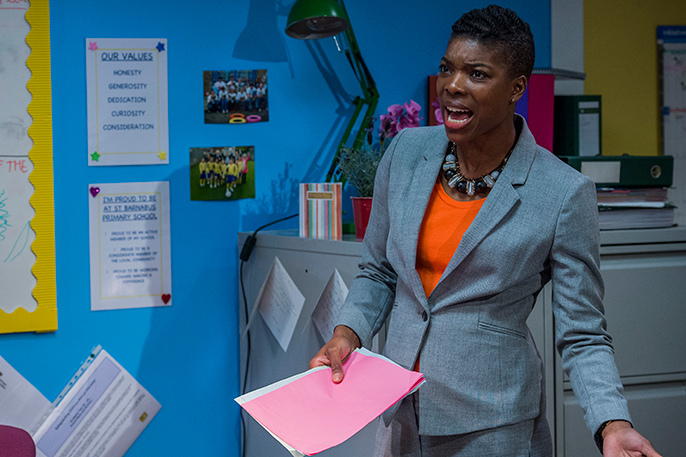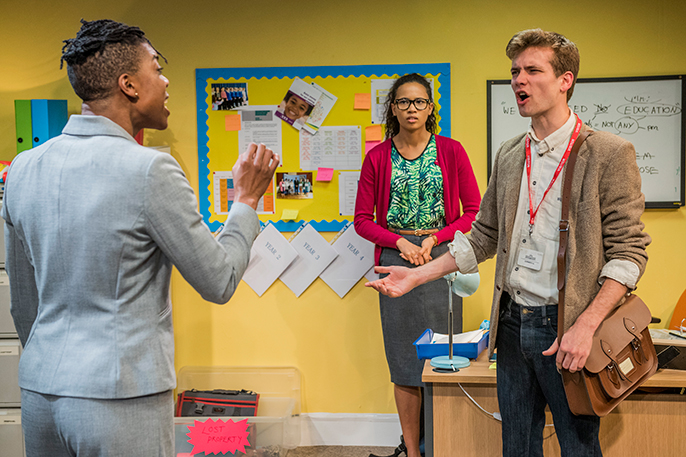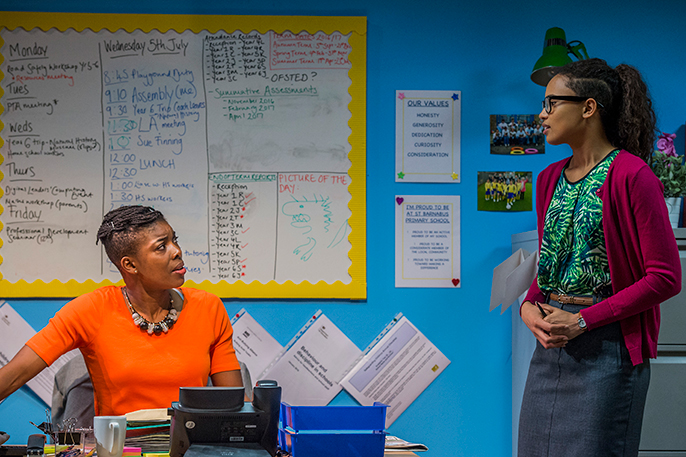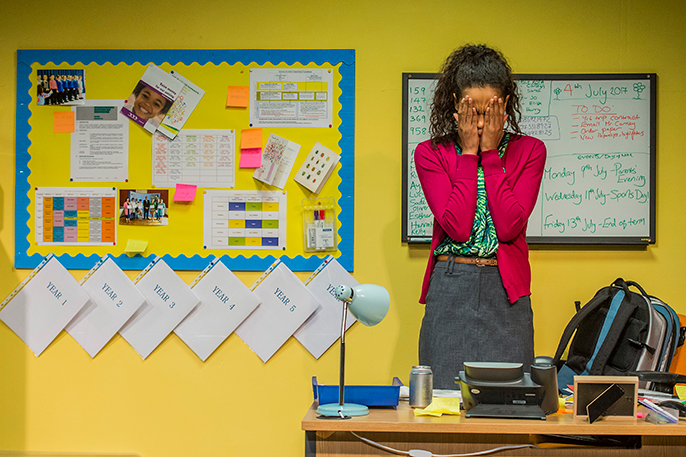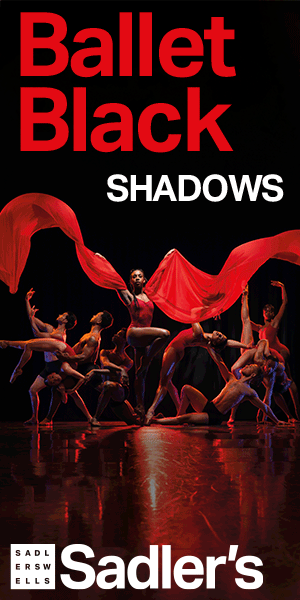School Play, written by Alex Mackeith, attempts to create a drama out of an escalating education crisis; alas, it falls short on the drama and – despite being mildly educational – rather resembles (sorry, a school play.
Set in the headteacher’s office of a south London primary school, it uses the arrival of the school’s SATs results as the ‘inciting incident’.
Ann Ogbomo plays ’Jo’, the headmistress concerned with the board of governor’s decision on the school’s future, the well-being of her pupils (both physical and educational), and – as we discover in a series of answer machine messages from an estranged husband – an impending divorce. The latter plot-point is treated cursorily, and feels somewhat ‘bolted-on’.
The other two main characters are ‘Lara’ – the headmistresses’ secretary, played by Fola Evans-Akingbola (read interview) – and Oliver Dench’s ‘Tom’, a temporary supply teacher.
The device used to get/keep Tom in the room/conversation is their previous night’s (sexual) liaison. The fact that this potentially intriguing plot-point is treated so flippantly – and discarded so summarily – does not help us warm to either character. Two other sub-plots – each essaying the ‘neglected child’ dynamic seemingly prevalent in the inner cities – are presented. Indeed, two other actors arrive later on to allude to the wider (school) world but this feels like too little – too late.
School Play makes the point that the cash-starved social education system is almost designed to be a career springboard for young, upwardly mobile professionals
Interesting points are made about how many young professionals use the field of ‘teaching’ as mere work-experience, often treating it as a stepping-stone to bigger and better things (law, in Tom’s case). Indeed, the play makes the point that the cash-starved social education system is almost designed to be a career springboard for young, upwardly mobile professionals (i.e.; the predominantly white middle classes). Of course, this is done at the expense of the school-kids themselves, leaving those who consider the education of children to be a vocation – if not, a spiritual calling – without resources, support, or even much hope.
When a play engages with a subject not often raised on stage, it is generally to its credit. Unfortunately – even though the issues raised by this production are important – they are presented alongside uncertain direction, an unwieldly, undramatic script, and performances that (while spirited) seem devoid of clarity; as a result it makes one long for another ‘programme’ in which to study them.
On a positive note, the set is well constructed – resembling, as it does, the interior of a school building.
Interestingly enough, the acronym ‘SAT’ originally stood for ‘Scholastic Aptitude Test’, before being adjusted, in 1993, to stand for ‘Scholastic Assessment Test’; now, it officially stands for… nothing (!) It is a pity that this play took such a circuitous route to telling us just that.






















